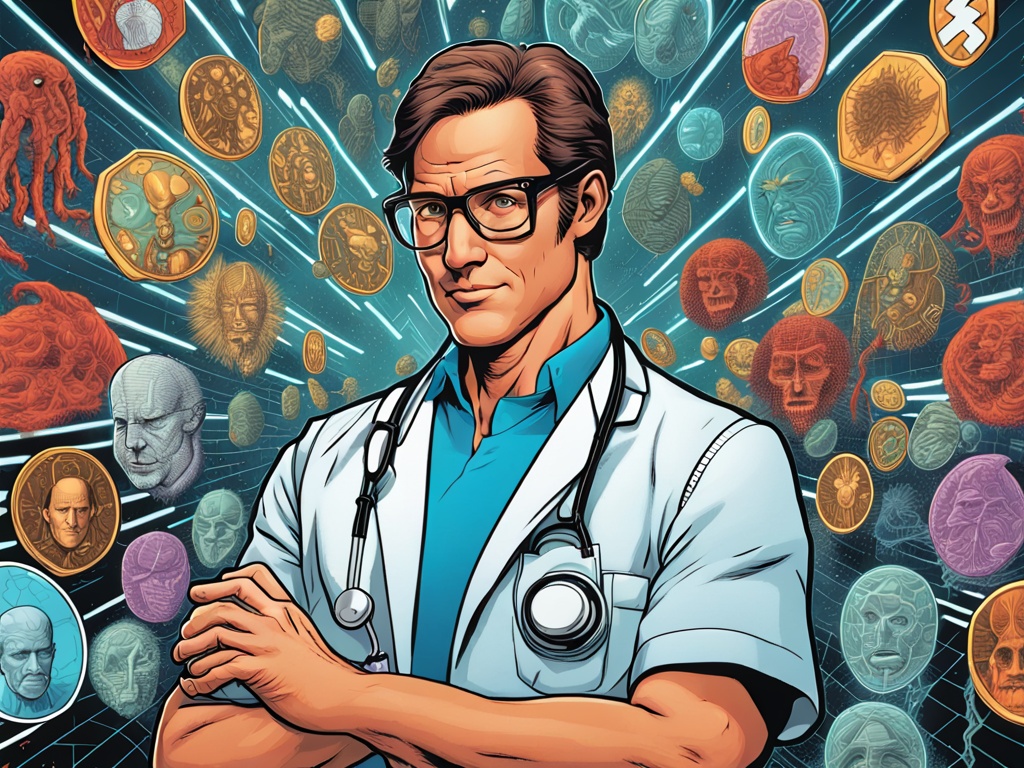What Do We Really Know About AI in Medicine? Is It Worth the Risk for Your Health?
Hey there! I’m so glad you could join me today for a little chat about a topic that’s becoming hotter than a cup of chai on a rainy day—AI in healthcare. Specifically, how platforms like X (formerly Twitter) are diving into the realm of medical diagnostics with the help of AI tools. You might have seen some buzz around Grok, the AI chatbot that seems to be making waves—some good, some head-scratching. So, let’s break it down, shall we?
Key Takeaways:
- Grok is allowing users to upload medical images for AI-based diagnoses.
- Concerns about privacy and accuracy are paramount.
- There’s potential for AI to improve healthcare, but caution is advised.
Is Your Data Safe with AI Chatbots?
So, here’s the crux of the matter. People are now sharing their medical data, images like MRIs and CT scans, with an AI chatbot. Yeah, you heard that right! It’s kind of like asking your friend—who’s not really a doctor—“Hey, can you figure out what’s wrong with me just by looking at this picture?” Now, some users are enthusiastic, claiming it helped them get insights faster than waiting for an appointment. But it could also bring up some serious red flags.
-
Privacy Whirlwind: When you share sensitive health info on Grok, you’re basically tossing it into the digital wind. There’s a law called HIPAA that protects health information, but it only applies to specific entities like hospitals or clinics. Sharing personal medical info on a social platform? Nope, not protected. It’s like telling your life’s secrets to your bartender instead of your therapist—very different outcomes can arise from that.
- Real Concerns from Experts: Folks like Bradley Malin, a professor at Vanderbilt University, have raised alarms about how companies are handling your data. It’s like saying, “Hey, I trust you,” but you really don’t know what that company will do behind the scenes. After all, once the data’s out there, it can be shared, sold, and repurposed in ways you didn’t sign up for.
The Risk of Bad News
Now, let’s address another elephant in the room—the accuracy of AI diagnostics. It’s a bit of a roller coaster ride. While some users have praised Grok’s capabilities, others have reported misses—like a broken clavicle being mistaken for a dislocated shoulder. Here’s the deal:
- Potential for Misdiagnosis: Relying on AI for medical issues can be super risky. Suchi Saria from Johns Hopkins University pointed out that the accuracy of AI tools hinges heavily on high-quality data and skilled design. Think about it: Would you trust a DIY job if the person went on YouTube to learn how to do it? A big no, right?
AI: The Good, the Bad, and the Ugliness of Data Sharing
Despite the risks, AI’s promise in healthcare cannot be brushed off. It’s like finding that perfect cup of masala chai that keeps you warm on a chilly evening; it just comes with a little spice of caution. AI can indeed improve patient experiences and optimize healthcare services, like reading mammograms and finding candidates for clinical trials.
- Information Altruism: Some people are willing to share their data for the greater good, a concept termed "information altruism." If you truly believe this could lead to better outcomes for everyone, then why not? But, you have to wear that ‘buyer beware’ hat at all times.
Practical Tips for Navigating the AI Healthcare Maze
-
Do Your Research: Check the privacy policies of these AI tools. Understand what they do with your data and what rights you have.
-
Consult Professionals: Treat AI like a secondary opinion. It’s great to get insights, but don’t skip the healthcare professional’s visit entirely. Trust your doctor more than an algorithm.
-
Stay Informed: Follow any updates or news about these AI tools. New features, data policies, or privacy laws might change how they work.
-
Be Cautious: If something feels off, trust your gut. It’s okay to hold off on sharing sensitive information.
- Engage in Conversations: Join forums or groups where these topics are discussed. A shared experience can be enlightening.
My Two Cents
Honestly, this whole scenario feels like we’re living in a sci-fi movie. On one hand, it’s exhilarating to see technology advancing and potentially improving lives, but on the other hand, heavy with responsibilities, too. As someone in the crypto space, I can’t help but draw parallels. Just like in cryptocurrencies, you must tread carefully when dealing with online platforms that might not hold your best interests at heart.
Are healthcare AI tools the way of the future, or are we opening up Pandora’s box? It’s a thought-provoking question that can stir intense debates among tech enthusiasts and medical professionals alike.
So, tell me—are you ready to embrace this digital frontier, or do you prefer the good old human touch when it comes to your health?





 By
By

 By
By
 By
By

 By
By